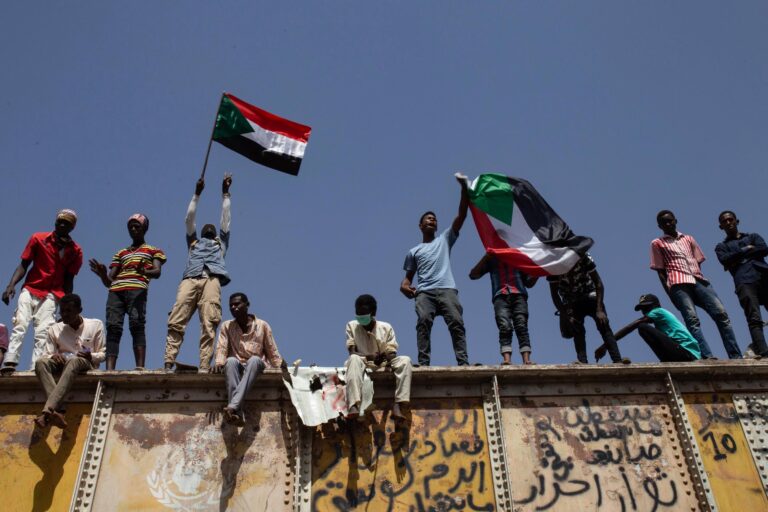Sudan is currently facing what the United Nations has called the world’s largest human displacement crisis.
Fighting between rival factions erupted on April 15, 2023, in the capital of Khartoum. The conflict is primarily a power struggle between the leaders of the Sudanese Armed Forces (SAF) and the paramilitary group Rapid Support Forces (RSF).
Prior to the current conflict, Sudan had been struggling with violence and displacement since the Darfur crisis in 2003.
The removal of former Sudanese President Omar al-Bashir in 2019 had initially sparked optimism for a return to civilian rule as Abdalla Hamdok, an economist, was chosen to be prime minister. However, a military coup organized by the SAF and RSF removed Hamdok from office in Oct. 2021. He was reinstated as prime minister the following month alongside his agreement to cede certain governmental powers to General Abdel Fattah al-Burhan, the leader of the SAF, and Mohamed Hamdan “Hemetti” Dagalo, leader of the RSF. However, Hamdok resigned in Jan. 2022.
Since Hamdok’s resignation, Sudan has had no civilian leadership as Burhan operates as the de facto head of state. By early 2022, Burhan and Hemetti were in charge of the government, and the current power struggle between the two hadhave overtaken Sudan’s efforts to transition.
The recent fighting in Sudan began when the country was experiencing its highest levels of humanitarian need in a decade, according to the UN Refugee Agency.
In the first two weeks, the country faced a shortage of food, water, medicine, and fuel. Prices rose by 40 to 100 percent, with fuel prices rising from $4.20 USD to $67 USD per gallon.
Prior to the current conflict, Sudan was home to over 1 million refugees, the second-highest refugee population in Africa. According to the UN Refugee Center, around 200,000 refugees fled the country, while another 700,000 people were internally displaced in Sudan. As of Jan. 2024, more than 7.4 million million people have fled their homes since the conflict began, according to the UN Office for the Coordination of Humanitarian Affairs.
“It’s a daily struggle to get the essentials we need,” said Iman, a mother of two sheltering at a displacement site in Wadi Halfa, a Sudanese city bordering Egypt. “We lost everything that mattered to us: our home, our belongings, our jobs, and our sense of security.”
Frustration is rising among both human rights advocates and politicians over the U.S. and international community’s response to the crisis in Sudan. Despite having devastating humanitarian effects, the situation is being overshadowed by the wars in Gaza and Ukraine.
“The ongoing and escalating violence in Sudan, as well as Sudan’s history of genocide, require additional urgent action from the United States and international community before more lives are lost,” Senator Ben Cardin (D-Md) said in a joint statement with Senator Jim Risch (R-Idaho) in Dec. 2023.
Bashair Ahmed, founder of the Sudan Crisis Coordination Unit, described in an interview with the Guardian how Sudanese people trapped in the country are aware their situation is losing international attention. He recalls a conversation he had with a displaced mother in Khartoum.
“Her son was saying to her, why is everyone focusing on Ukraine or other contexts? Why are they forgetting about us?” Ahmed said. “Everything they owned, everything they had, that’s been lost, essentially. And everyone has to start from zero.”
Negotiations led by the United States and Saudi Arabia have been unsuccessful thus far. However, RSF leader Hemetti expressed his commitment to ending the conflict.
“We are extending our hands for peace and the cessation of hostilities in the country,” Hemetti declared in a press conference on Jan. 2. “Our meeting in Addis Ababa is for peace, and we hope that the second party will pursue the path of peace.”
Hemetti and former prime minister Hamdok signed a joint declaration known as the Addis Ababa Declaration, which they hope will lead to an unconditional cessation of hostilities between the RSF and SAF.
In a recent statement, Hemetti further outlined his dedication to establishing a stable and peaceful Sudan as he said, “Anyone who obstructs negotiations, prevents meetings from taking place, or abandons the negotiating table without justifiable cause is betraying the Sudanese people.”




